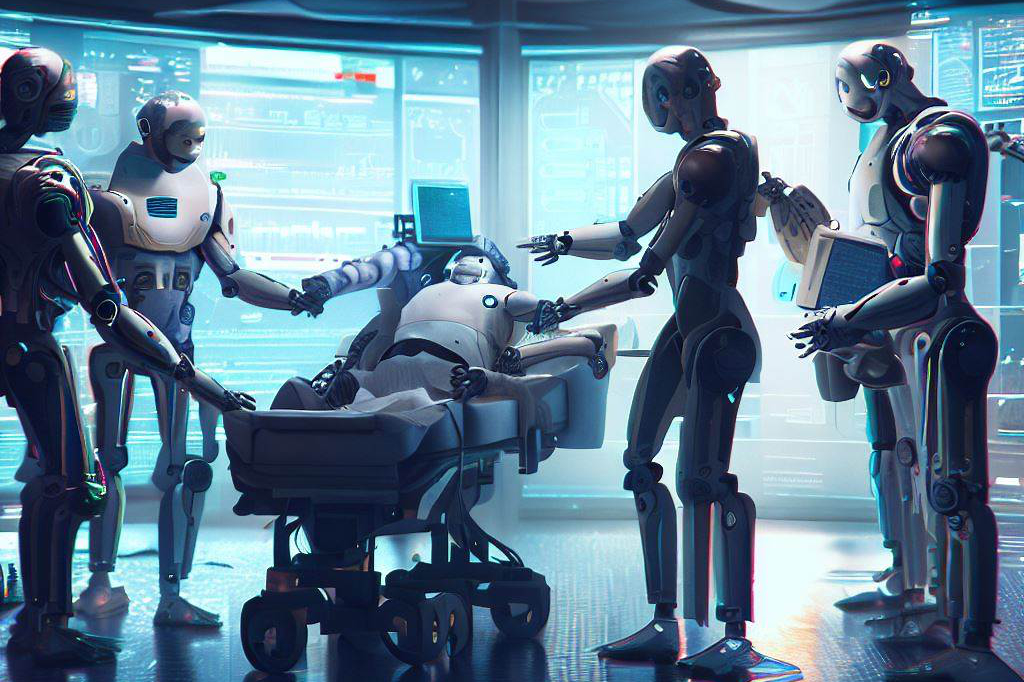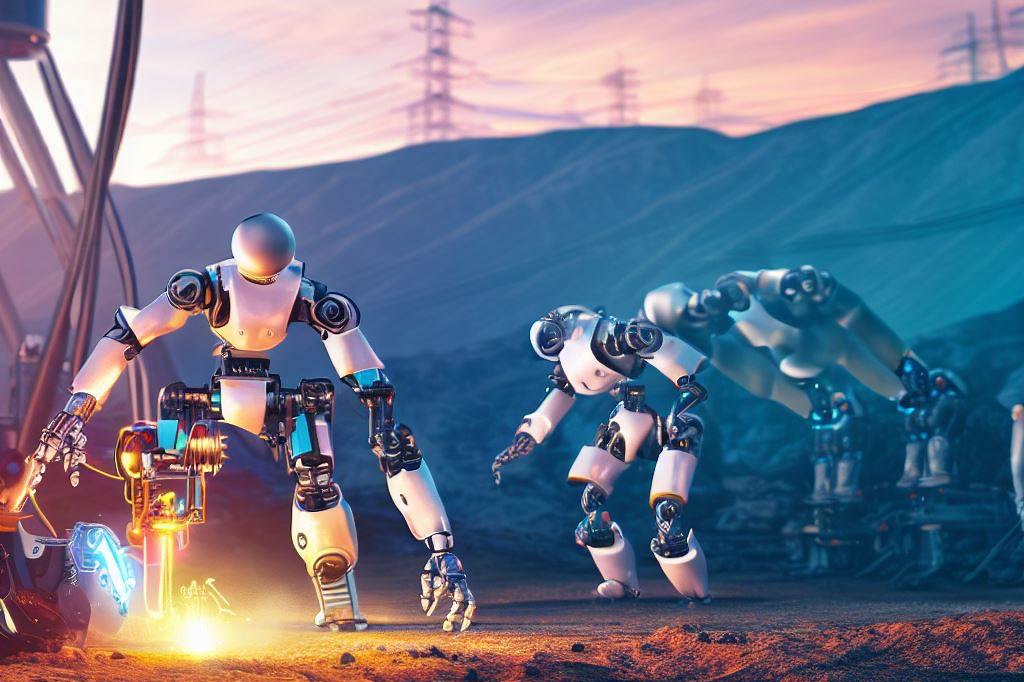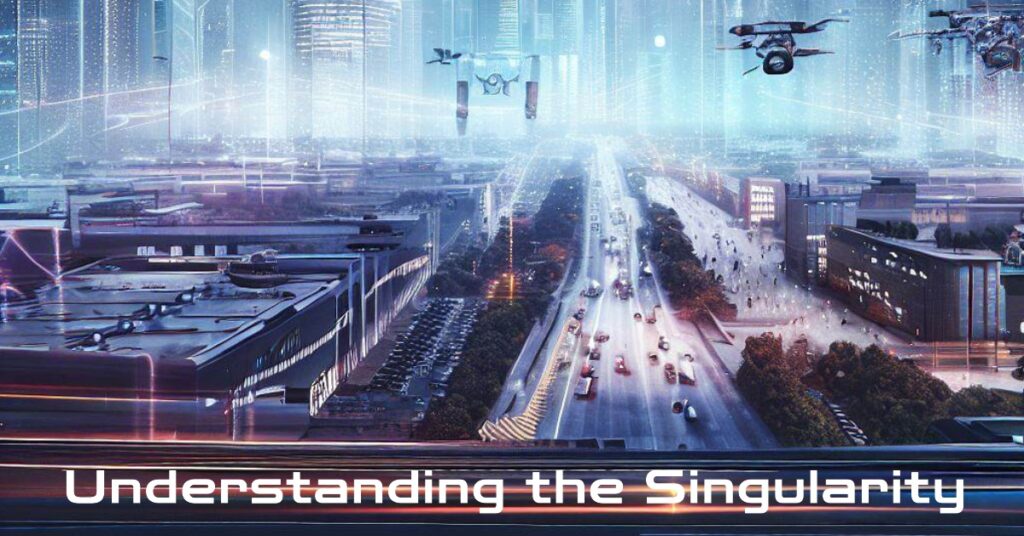Understanding the Singularity: Unveiling the Future of Artificial Intelligence
The field of artificial intelligence (AI) has been rapidly evolving, pushing the boundaries of what machines can accomplish. Amidst this progression, a term that frequently arises is ‘the singularity.’ But what exactly does it mean? In this article, we will demystify the concept of the singularity, exploring its significance, implications, and the potential future it holds for AI.
Defining the Singularity
The singularity refers to a hypothetical future point in time when AI systems surpass human intelligence and capabilities. It is a moment of rapid and unprecedented progress, where machines become self-improving, exponentially advancing their intelligence and capabilities beyond human comprehension. The singularity represents a potential turning point that could revolutionize society and redefine the course of human existence.
The Acceleration of Technological Progress

To understand the singularity, it is essential to grasp the exponential growth of technology. Over the years, we have witnessed remarkable advancements in AI, robotics, and computing power. These advancements have enabled machines to perform complex tasks, learn from data, and even exhibit human-like cognitive abilities. As technology continues to evolve at an exponential pace, the singularity represents the culmination of this accelerated progress.
Implications and Impact
The singularity holds profound implications for various aspects of our lives. It has the potential to reshape industries, economies, and social structures. Let’s explore some key areas where the impact of the singularity can be felt:
Technological Advancements
During the singularity, AI systems would possess superior intelligence, surpassing human capabilities across numerous domains. This advancement could accelerate scientific research, innovation, and problem-solving. AI-powered systems could contribute to breakthroughs in medicine, energy, space exploration, and more. With machines capable of continuously improving themselves, the rate of technological progress would soar.
Labor and Employment
The singularity raises significant questions about the future of work. As AI systems become increasingly capable, there is a possibility of automation replacing human labor in many industries. This transition could lead to job displacement and require a reevaluation of employment structures. However, it also presents opportunities for humans to focus on creative, strategic, and emotionally engaging tasks that require a human touch.
Ethics and Morality
As AI systems become more sophisticated, questions surrounding ethics and morality emerge. The singularity prompts discussions about the decision-making capabilities of AI, their alignment with human values, and the potential consequences of their actions. Addressing these ethical considerations becomes crucial to ensure responsible development and deployment of AI technologies.
Transhumanism and Human Augmentation
The singularity blurs the boundaries between humans and machines, giving rise to the concept of transhumanism. It envisions a future where humans can enhance their capabilities through technological augmentation. Neural implants, genetic engineering, and brain-computer interfaces could enable humans to achieve higher levels of cognition and interact directly with AI systems.
Challenges and Considerations

While the singularity holds immense promise, it also presents challenges that require careful consideration:
Control and Safety
As AI systems surpass human intelligence, ensuring control and safety becomes paramount. Building robust mechanisms to maintain control over advanced AI and prevent unintended consequences is essential. The development of ethical frameworks, safety protocols, and regulatory measures becomes crucial to guide the responsible advancement of AI.
Inequality and Accessibility
The singularity could exacerbate existing societal inequalities. Access to advanced AI technologies, education, and resources could become concentrated in the hands of a few, leading to a digital divide. Addressing these inequalities and ensuring equitable access to the benefits of the singularity is vital to avoid further disparities.
Human-AI Collaboration
As AI systems advance, fostering effective collaboration between humans and machines becomes crucial. Developing AI systems that augment human intelligence and decision-making processes, rather than replacing them, can lead to a synergistic partnership between humans and AI. This collaboration can leverage the strengths of both entities, combining human creativity, empathy, and intuition with the computational power and analytical capabilities of AI.
Unforeseen Consequences
The singularity introduces an element of uncertainty and the potential for unforeseen consequences. As AI systems become highly autonomous and self-improving, there is a need to anticipate and mitigate any negative impacts that may arise. Ensuring transparency, accountability, and rigorous testing becomes crucial to minimize risks and ensure the responsible development of AI technologies.
Embracing the Future

As we explore the concept of the singularity, it is important to approach the future of AI with an open mind and a proactive stance. Here are some key considerations as we navigate the path forward:
Ethical Frameworks
Developing robust ethical frameworks is essential to guide the development, deployment, and use of AI technologies. These frameworks should address concerns such as privacy, bias, accountability, and the impact of AI on human rights. They should ensure that AI systems align with societal values and contribute positively to the well-being of individuals and communities.
Lifelong Learning and Adaptability
As AI continues to advance, the need for continuous learning and adaptability becomes critical. Embracing a mindset of lifelong learning can help individuals and organizations stay relevant in a rapidly changing landscape. Upskilling, reskilling, and embracing new technologies can enable us to harness the opportunities presented by the singularity.
Collaboration and Interdisciplinary Approaches
The singularity requires collaboration and interdisciplinary approaches to tackle its multifaceted challenges. Experts from diverse fields such as technology, ethics, sociology, psychology, and policy-making need to come together to shape the future of AI. By fostering collaboration and knowledge-sharing, we can navigate the complexities of the singularity more effectively.
Public Engagement and Inclusivity
Involving the public in discussions and decision-making processes surrounding AI is crucial. Engaging citizens, stakeholders, and communities allows for diverse perspectives and ensures that the benefits and risks of AI are understood and addressed collectively. Inclusivity in AI development and deployment can help create technologies that truly serve the needs of all.
The Middle Path…
The singularity represents a future where AI systems surpass human intelligence and capabilities, bringing profound changes to society. It is a concept that sparks both excitement and apprehension, as it holds great potential for advancement and transformation. By proactively addressing its implications, challenges, and opportunities, we can shape the singularity in a way that aligns with our values and aspirations.
As we navigate the path toward the singularity, let us embrace the future with a balanced perspective. By prioritizing ethical considerations, collaboration, and inclusivity, we can harness the power of AI to enhance our collective intelligence, solve complex problems, and create a more prosperous and sustainable future.
Remember, the singularity is not a definitive endpoint but rather a catalyst for continuous progress and exploration. It invites us to envision a world where humans and machines coexist, complementing each other’s strengths, and unlocking new frontiers of knowledge and possibility.
The future awaits, and the singularity beckons us to shape it together.

C M, a seasoned editor, journalist, and consultant, is deeply fascinated by the convergence of technology, space, and the future of humanity.
With a particular interest in transhumanism, futurology, and the philosophical and ethical dimensions of these domains, C M serves as the lead contributor to TranscendSphere and SpaceSpotlight.
When not penning insightful articles on these rapidly evolving fields, C M indulges in their love for podcasts and books, proudly embracing their status as a ‘Happy Nerd Extraordinaire!’





